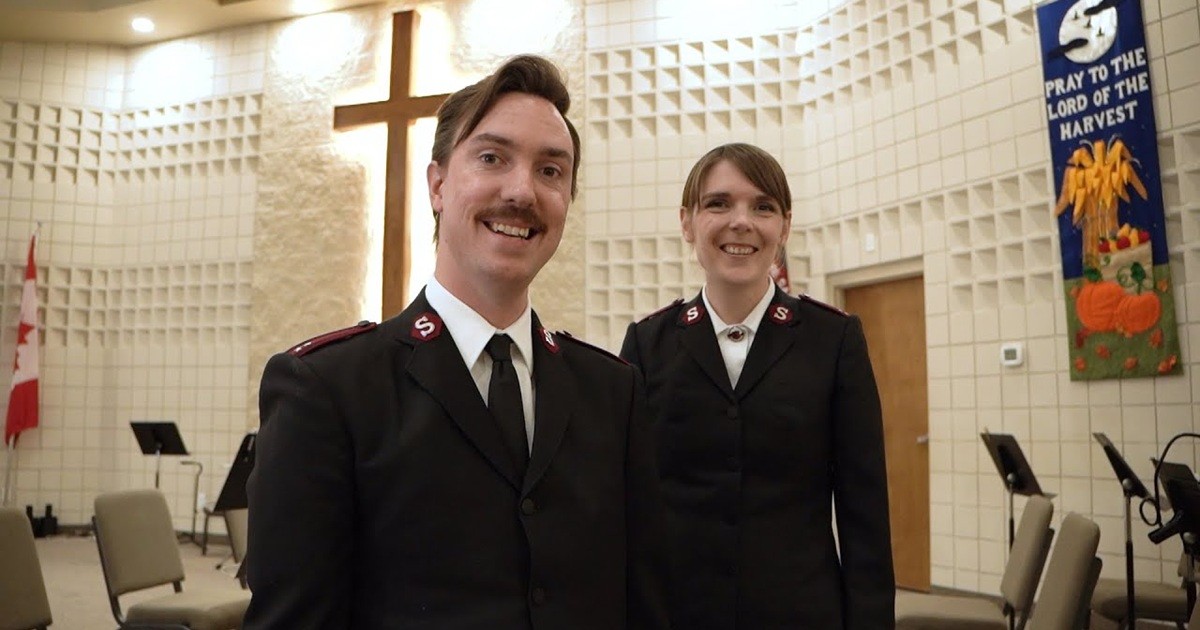 North Americans have embraced Facebook. We love to update our statuses, accept and seek out new “friends,” check out each other's family pictures and keep in touch with people we haven't seen since Grade 4.
North Americans have embraced Facebook. We love to update our statuses, accept and seek out new “friends,” check out each other's family pictures and keep in touch with people we haven't seen since Grade 4.
Chances are, even while you're reading this on your computer, you have a second Internet window open to your Facebook profile, waiting excitedly for the next red indicator to pop up, alerting you to the fact that someone has directed a comment to your page.
It's exciting that a small core of people find our lives interesting enough to read our status updates and to give us that little “thumbs up,” signifying that they like what we've just posted or got a chuckle from our impromptu quips.
I think it's fair to say that social media has even changed The Salvation Army. It was not uncommon in the past to know fellow Salvationists from across the territory. Now, through online communities, we connect with soldiers and officers from all over the world. I met one of my Facebook friends on a recent trip to New York, U.S.A., and he made the observation that Facebook has changed the Army world, citing the fact that people within our Movement are conversing, sharing ideas and reflecting on our faith in unprecedented ways.
But like everything, social media can be misused. As Salvationists, we are called to use all our time, gifts and talents (even our leisures) for the glory of God. If Facebook can't be used for this purpose, then it shouldn't be used at all. As someone who incorporates Facebook into my church ministry, I've given some thought to its function.
Facebook is...
Fun, light-hearted, informative. A great way to stay in touch with friends and family. It allows us to playfully and creatively express unique aspects of our personality to others.
A medium where ideas can be exchanged freely and frequently. Want to create a buzz about your church or ministry unit? Then create a Facebook page. Many church websites are static and unchanging, like virtual bulletin boards (great for getting information out there but failing to fully engage your web audience). Facebook combines aspects of a traditional webpage with a blog site, offering the potential for lively and engaging conversations.
A place to hone your critical thinking skills. OK, maybe this one isn't so obvious, but think about it. You read an online article you think is worthy of sharing with others. In the past, you would have had to print it off so the person could read it. Now all you need to do is click on the “Recommend” tab at the bottom of most web articles, automatically posting it to your Facebook page. Now, it's there for all to see. Thinking and reading sharpens our mental prowess, so it's helpful to both offer and receive ideas from other friends.
Facebook is not...
A private diary or journal. I've seen many status updates that were so inappropriate they made me blush just reading them. Facebook is not a place to complain about your corps officer or those in ministry. It's not the place where you should talk about those in your church who give you grief. Keep it positive, keep it encouraging, and if you can't do that, keep it in a locked diary.
A substitute for pastoral care. Telling a friend that you'll pray for them on Facebook is good from time to time, but human beings are built in such a way that true comfort can only be obtained by person-to-person contact. That could mean a personal visit at someone's hospital bedside; that could mean a warm handshake or an appropriate hug between friends. Facebook will never (and should never) replace human interaction. Salvationists are called to be God's hands and feet in a hurting world. We need to use our hands for more than just typing status updates.
Real life. Facebook, like many other technologies, can be addictive. For my own benefit, I haven't got a cellphone with the capability for social media. I'd be tempted to constantly check what my friends or my soldiers are doing. Believers need to be engaged, with our eyes ever forward, and always on the lookout for those in need. How many “Zacchaeuses” have we passed on by, simply because our eyes were diverted downward, in our Blackberries? Like Jesus, we need to keep our eyes open and alert; there may just be someone sitting in a tree that we're supposed to meet.
So for all you Facebook fans, use this great resource with much wisdom and discernment. Send a word of encouragement to a “friend” today, but follow it up with a chat at your local coffee shop. The Apostle Paul (someone who I believe as a great communicator would have loved Facebook) told us to think about “whatever is true, whatever is noble, whatever is right, whatever is pure, whatever is lovely” (Philippians 4:8). We'd be wise to apply Paul's words to our use of Facebook.
What do you see as Facebook's more positive qualities? What about it causes you concern?
 Lieutenant Robert Jeffery is the corps officer of Spryfield Community Church in Halifax, Nova Scotia. Married to Hannah, they have two children.
Lieutenant Robert Jeffery is the corps officer of Spryfield Community Church in Halifax, Nova Scotia. Married to Hannah, they have two children.









Time has changed, we are living in a world where technology is changing fast and we have to keep with the time or else we will be left out.
We need to be a good steward of time when using this tool, so that our own ministry is not affected, Use it in the right way and it help you in the ministry. God bless you.